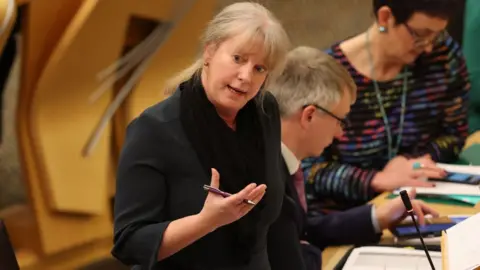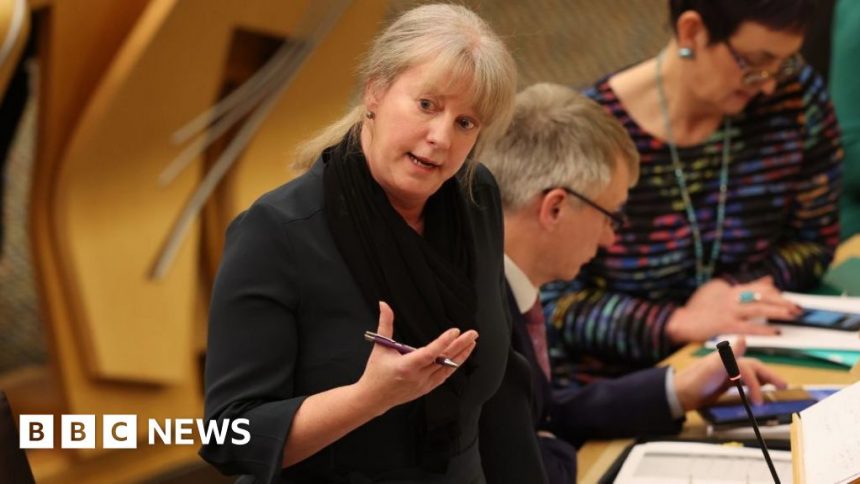No need for ‘large’ council tax hikes – Robison
 PA Media
PA MediaCouncil tax increases should be kept to a “minimum” next year, Finance Secretary Shona Robison has claimed.
Her government is planning to end a freeze on local authority levies from April.
Robison said a proposed £1bn uplift in funding for councils should prevent them from introducing any “large” tax increases.
Ahead of the Budget, council body Cosla warned that increases could be needed to protect “vital services”.
It is yet to issue a full response to the government’s spending plans, with council leaders due to meet on Friday.
‘Sensible outcomes’
Council tax is set, administered and spent by local authorities. The government has previously offered a financial incentive for them to comply with a cap or freeze.
Robison told BBC Radio’s Good Morning Scotland programme: “The settlement that we are giving to local governments, I think, will mean that they don’t have to put large increases to council tax.”
She added: “I don’t think there’s any administration of any political colour that will want to look at citizens in the eye, given this settlement, and increase the council tax beyond what is required.
“And I’m sure there’ll be a sensible outcome in those discussions.”
Funding for local authorities will exceed £15bn for the first time under the government’s Budget plan.
Robison said this would include £289m of non-ring fenced discretionary funding in the general revenue grant.
That record settlement would still fall short of the £15.4bn Cosla called for ahead of the Budget.
A recent survey by the Local Government Information Unit found that about a fifth of councils were considering tax rises of at least 10% next year.
Since 2007, council tax has generally either been frozen or increases have been capped by Holyrood.
According to figures from 2021-22, council tax revenue made up about a fifth of local authority funding.
The levy was frozen in 2024-25, with the government paying councils more than £200m to cover the cost.
A freeze was welcome news for homeowners, but it angered councils desperately short of cash.
The move has also been criticised as an inefficient way of helping the worst off, with rates based on property values from 1991.
After the Budget, Cosla said it would “spend the coming days analysing the implications for local authorities”.






